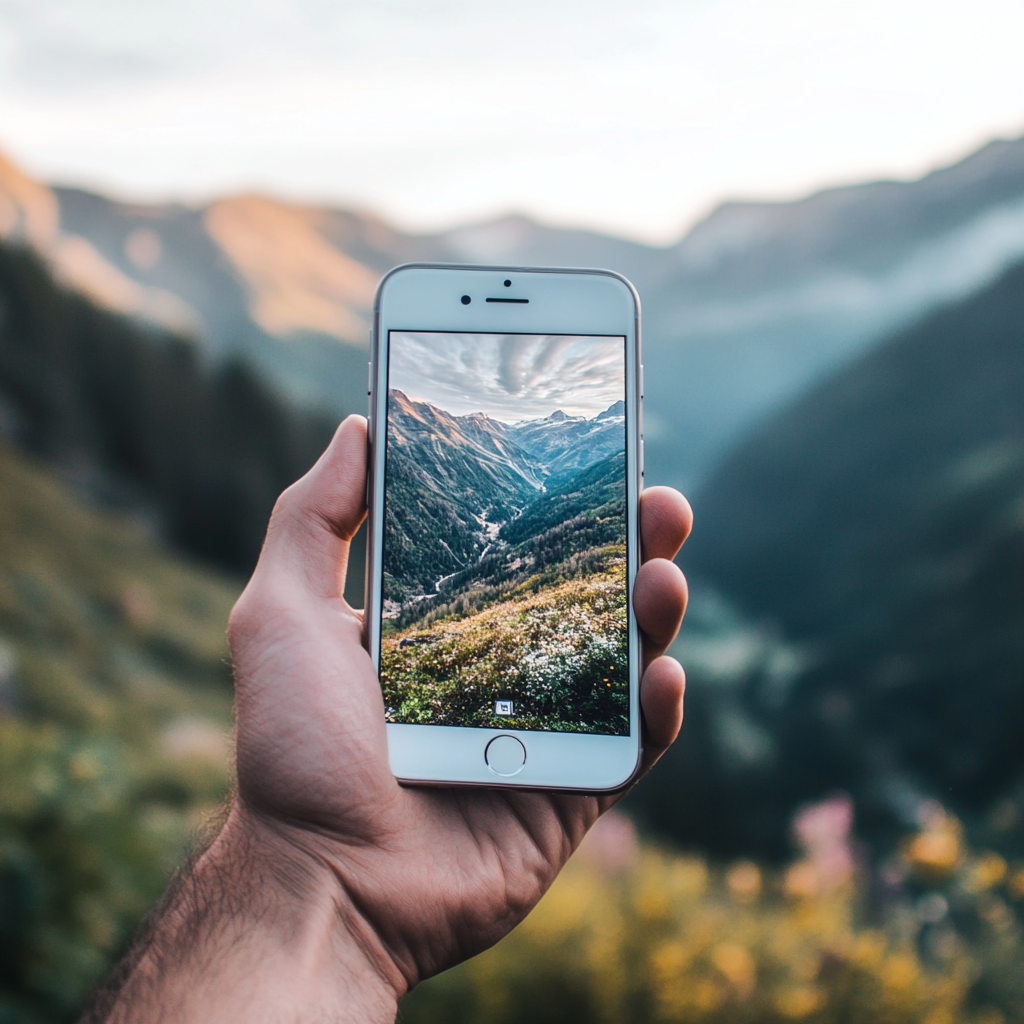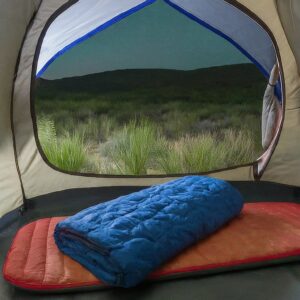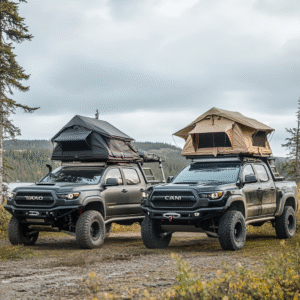It starts innocently enough. You check your phone first thing in the morning—just a quick glance at your email or social media. Then it’s a few texts, a couple news headlines, and maybe a video or two over lunch. Before you know it, hours have passed, your brain feels scrambled, and the day has disappeared into an endless scroll.
Sound familiar?
You’re not alone. The average adult spends over 7 hours a day looking at screens. For many, that number is even higher. Between work, entertainment, social media, and news, we’re tethered to our devices in ways we rarely question—but often feel.
And we’re starting to feel it more than ever.
Burnout. Disconnection. Mental fog. A nagging sense that something is off. That we’re missing out on something more real. Something grounding.
That’s where car camping comes in.
It’s not just a fun hobby or a weekend escape—it’s a powerful reset button. A chance to go from screens… to stars.
Here’s how car camping helps you escape digital life, reconnect with the real world, and remember what it feels like to live offline—even if only for a little while.
The Digital Overload Is Real
Let’s be honest: our devices aren’t inherently bad. They’re useful, entertaining, and often necessary. But the problem isn’t just the time we spend on them—it’s what they take us away from.
- Real conversations
- Sensory experiences
- Our own thoughts and reflections
- Simple pleasures, like watching a fire or feeling the breeze on our face
Most of us don’t realize how fragmented our attention has become until we step away. We get so used to multitasking, scrolling, checking, and reacting that it feels normal.
But it’s not.
We weren’t built to live this way. And when we unplug—really unplug—we begin to feel the difference almost immediately.
Car Camping Is the Digital Detox You’ve Been Craving
You don’t need a fancy wellness retreat or a week-long tech cleanse to break the cycle. A simple car camping trip can do the trick.
When you drive out to a quiet piece of public land or a rustic campground, a few things happen naturally:
- Cell service fades
- Wi-Fi disappears
- The pressure to check in, update, and respond vanishes
Suddenly, there’s nothing pulling your attention but the real world in front of you. The sky. The trees. The fire. The people you’re with—or the calm of being alone.
You start to notice how good it feels to not be constantly available. How your body relaxes. How your mind slows. How silence is actually comforting, not awkward.
That’s the power of stepping away. And car camping makes it possible without requiring a drastic life change.
Replacing Notifications with Nature
There’s something profound about replacing the buzz of a phone with the sound of wind in the trees.
Car camping offers sensory richness that screens simply can’t match. Instead of blue light and constant alerts, you get:
- The flicker of a campfire at dusk
- The distant call of an owl
- The texture of dirt, bark, and rocks beneath your hands
- The coolness of morning air in your lungs
These experiences might seem small, but they matter. They pull you out of your head and into your body. They remind you that you are part of a physical world—not just a digital one.
And the best part? They don’t demand your attention. They simply invite it.
The Stars Don’t Need Wi-Fi
One of the most magical parts of car camping is something we often forget exists: the night sky.
In most cities and suburbs, light pollution washes out the stars. We’re lucky if we see a handful. But drive just an hour or two into a more remote area, and everything changes.
The stars come alive. Thousands of them. Constellations, shooting stars, the faint glow of the Milky Way. It’s breathtaking.
And it’s humbling.
There’s something healing about staring up into the vastness of space—something that no screen, no show, no Instagram feed can replicate. It puts everything in perspective. It quiets the noise. It reminds you that there’s a whole universe out there… and you’re part of it.
Being Bored Is a Feature, Not a Bug
In our digital lives, we rarely let ourselves be bored. The moment there’s a pause—waiting in line, sitting at a red light, lying in bed—we grab our phones.
But car camping reintroduces something we’ve lost: unstructured time.
You might find yourself sitting by a fire with nothing to do. Or lying in your sleeping bag, watching the sky fade from blue to black. And at first, it might feel weird. Empty.
Then something shifts.
Your thoughts settle. Your creativity stirs. You start telling stories. Playing cards. Staring into the flames. Watching ants. Sketching in a notebook. Or just… being.
This kind of boredom isn’t dull—it’s restorative. It gives your brain room to wander, rest, and reconnect with deeper parts of yourself.
You Relearn How to Be Present
When you’re not checking your phone every few minutes, something amazing happens: you start to experience the moment as it is.
Fully. With all your senses.
You don’t just take a picture of your meal—you savor it. You don’t post a photo of the sunrise—you watch it unfold, minute by minute. You don’t scroll past someone’s story—you become part of your own.
Car camping makes this kind of presence feel natural. Because there’s nothing pulling you away. Nothing asking for your reaction. Just the moment. Just you.
Real Connection Happens Without a Screen
Whether you’re camping solo or with others, the lack of digital interference opens space for real connection.
- With yourself
- With your travel companions
- With nature itself
Conversations flow more easily. Laughter comes more often. You might find yourself talking for hours around a fire—about nothing and everything. Or sitting quietly beside someone without the need to fill the silence.
And if you’re camping alone, that connection deepens inward. You get reacquainted with your own thoughts, your own rhythms. You might write, reflect, or simply sit with the quiet—and realize it’s not scary. It’s freeing.
The Reset You Didn’t Know You Needed
Many campers say the same thing after their trip:
“I didn’t realize how much I needed that.”
Not just the fresh air or the beauty of nature—but the absence of everything else. The freedom from alerts, comparisons, and the constant flood of information.
Even a short weekend trip can feel like a reset. You come back clearer. Calmer. More grounded. And maybe a little more resistant to falling right back into the scroll.
You remember that you have a choice in how you spend your attention—and your life.
Tips for a More Intentional Digital Detox While Car Camping
If you want to maximize the benefits of unplugging, here are a few simple tips:
1. Go Where There’s No Signal
Choose a campsite or dispersed area with limited or no service. This removes the temptation to “just check one thing.”
2. Put Devices on Airplane Mode
Use your phone only for essentials like taking photos or checking maps, if needed. Otherwise, keep it in airplane mode—or better yet, turned off.
3. Leave the Laptop at Home
Unless you’re working remotely on purpose, don’t bring your laptop. This is your break. Let it be that.
4. Bring Analog Entertainment
Books, cards, journals, sketchpads, instruments—these all help fill your time in more mindful ways.
5. Set an Intention
Before your trip, set a personal goal: maybe it’s to be fully present, to not check email, or to spend more time in silence. Let that guide your experience.
You Don’t Have to Disconnect Forever—Just Long Enough to Remember
This isn’t about rejecting technology altogether. We’re not saying phones are evil or that you should live in the woods full time (unless you want to!).
It’s about balance.
It’s about remembering what it feels like to be fully present. To wake with the sun instead of an alarm. To watch a fire instead of a screen. To connect with nature—and with yourself—without a filter or a hashtag.
Car camping doesn’t just take you away from your devices. It brings you back to your life.
The real one. The one with dirt under your nails, stars overhead, and quiet moments that feel like home.
So the next time you’re feeling overwhelmed, burnt out, or just tired of screens—pack your gear, hop in your car, and head for the trees.
Trade the glow of a screen for the glow of a fire.
Trade the constant scroll for the wide-open sky.
Trade being plugged in for being alive.



